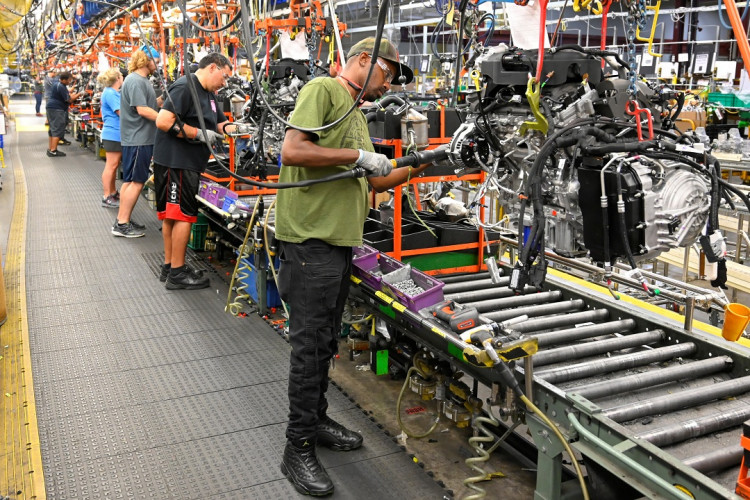In a high-stakes negotiation, the United Auto Workers (UAW) union and Detroit's Big Three automakers - General Motors, Ford, and Stellantis - are fervently working to strike a deal as the looming threat of a more extensive strike hangs in the balance.
The UAW, representing a vast majority of the auto industry's workforce, initiated the strike four days ago, citing grievances related to pay, job security, and working conditions. As the strike enters its critical phase, the economic repercussions are becoming increasingly evident. General Motors (GM) and Ford have already reported significant disruptions in their operations, with several plants facing temporary shutdowns and thousands of workers being laid off.
According to Reuters, the union's decision to strike was a culmination of mounting frustrations over stagnant wages, despite the auto industry seeing substantial profits in recent years. The UAW is pushing for a substantial wage increase, more job security, and a commitment from the automakers to invest more in their U.S. factories.
NPR reports that the ripple effects of the strike are already being felt across the industry. On day four of the strike, GM announced temporary layoffs at two of its Canadian plants due to a shortage of parts manufactured in the U.S. Similarly, Ford has had to halt operations at its Kansas City assembly plant, which produces the best-selling F-150 pickup truck.
The broader economic implications of an extended strike are concerning for both the industry and the U.S. economy. The auto manufacturing sector is a significant contributor to the nation's GDP, and any prolonged disruption could potentially slow down economic growth. Moreover, the strike comes at a time when the auto industry is grappling with supply chain issues and a global chip shortage, further complicating the situation.
However, both sides seem to recognize the gravity of the situation. "We are committed to continuing discussions around the clock to reach a resolution," said a spokesperson for GM. Ford echoed a similar sentiment, emphasizing their aim to find "common ground" with the UAW.
For many workers on the picket lines, the strike is not just about wages but also about respect and recognition. "We've been there for the company during its toughest times. Now that they're making profits, it's time they stand by us," said a worker from a GM plant in Michigan.
Analysts believe that while the UAW has legitimate concerns, the union also needs to be cognizant of the broader challenges facing the auto industry, including the transition to electric vehicles and increased global competition.
As negotiations continue, the stakes are high for both the workers and the automakers. A prolonged strike could tarnish the reputation of the Big Three, disrupt the supply chain further, and impact the broader U.S. economy. All eyes are now on Detroit, hoping that both sides can find a middle ground and chart a way forward.






